The Unyielding Courage of Higuchi Ichiyo: A Solitary Rebellion Against the Oppression of Women in Japan
Brave Words in Adverse Conditions
"Though my lips are silent, my heart calls out, it calls and calls..."
- Higuchi Ichiyo, 1895, "Nigorie"
"To be brave in all matters of life and death, relinquishing the desires of the world, is the path on which a woman can achieve what a man can."
- Higuchi Ichiyo, 1894, "Diaries"
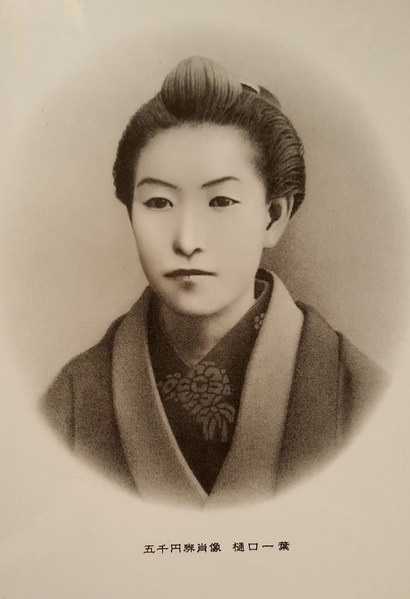
The Meiji era (1868-1912) was a time when Japan, amidst rapid change, embraced Western modernization. It was an era of contrasts: on one hand, rapid technological advancement and cultural expansion, and on the other, deep social upheaval and oppression. In these tumultuous times, an unconventional figure emerged on the literary scene - Higuchi Ichiyo (樋口一葉). Her work was a bold protest against the oppression and marginalization of women, who often suffered and were forgotten in an era of profound change.
Ichiyo, with remarkable courage and determination, defied the social norms of her time. Her stories not only dared to portray the harsh reality of women's lives but also expressed their hidden dreams, hopes, and fears. Her narratives, though rooted in the specificity of the Meiji era, possessed a universality that spoke to the hearts of readers worldwide. Higuchi Ichiyo's works, filled with pain, beauty, and emotional depth, transcended the boundaries of her time, presenting the voices of Meiji-era women as an immortal story of strength, courage, and the struggle for dignity.
Short and Tragic Life of Higuchi
"I sat on the street like this, dressed in tears and longing."
- Higuchi Ichiyo, from her letter during her financial difficulties, date unknown.
 Obstacles from the Beginning
Obstacles from the Beginning
In the shadow of a changing Meiji Japan, Higuchi Ichiyo's (樋口一葉) life began in 1872 in Tokyo. As the daughter of parents who had fled from Yamanashi Province to the city, Higuchi knew poverty from a young age. Despite living in poverty, her dreams were rich and full of aspirations, fueling her love for reading literature. Getting to know the stories of heroes and their adventures, she aspired to become a heroine herself, but the realities of the Meiji era placed nearly insurmountable barriers in her path.
During the Meiji era, when Japan was rapidly modernizing, girls' education was limited. Schools focused more on preparing young Japanese women to be obedient wives and mothers rather than developing their intellectual abilities. Although she was an outstanding student, Ichiyo was pulled out of school by her mother, who believed that further education was unnecessary for a young woman. However, her father, who was well-educated himself, recognized her talent and passion, providing her with access to books and private lessons. Here we encounter the first paradox - Higuchi's mother, as an exemplary woman of her time, restricted her daughter's access to education, while her father, supporting her, kept the literary flame alive by providing her with more stories to read.
 Father's Support Interrupted by Family Tragedy
Father's Support Interrupted by Family Tragedy
At the age of fourteen, with the support of her father, Ichiyo began her studies at the prestigious Haginoya Academy, where she studied waka poetry and classical Heian literature, such as "Kokinshū," "The Tale of Genji," and "Tales of Ise." Despite finding herself among the daughters of wealthy and influential people, she felt like an outsider. She didn't fit into the world of her peers, which prompted her to work intensely on herself and her art.
Unfortunately, when she was sixteen, tragedy struck her family. The deaths of her father and older brother due to tuberculosis placed her in the role of the family's head and caretaker for her mother and younger sister. In this era, women were legally considered the property of men - fathers or husbands. However, Ichiyo, as a young, single, 16-year-old woman, had to take responsibility for herself and her family.
Before her father's death, the family had considered her engagement to a well-off law student. However, when he realized their poverty, he abandoned her, dealing a significant blow to the Higuchi family. Without the possibility of continuing her education, Ichiyo couldn't work as a teacher, even though such opportunities existed at Haginoya. The family had to borrow money and engage in household work to survive. It was then that Ichiyo decided to try her hand at writing, inspired by the success of her academy colleague, Miyake Kaho.
 20-Year-Old Ichiyo's Debut
20-Year-Old Ichiyo's Debut
At the age of twenty, she wrote her first novel debut under the pseudonym Ichiyō, which in Japanese means "floating leaf." Her struggle to balance art and making a living became a constant challenge. Despite financial difficulties, she refused to publish works that didn't meet her high standards. In her diaries, she described her frustrations and disappointments, but also her unwavering determination to continue her creative work.
The path to literary success was difficult and full of obstacles. Ichiyo turned to Tosui Nakarai, a well-known writer, for help, and he assisted her in publishing her first short stories. However, both professional and personal relationships with him quickly became the subject of gossip, forcing her to sever those ties to protect her reputation and career. These experiences gave her writing a realistic and bitter tone and also influenced her perception of love.
 Struggles to Make Ends Meet
Struggles to Make Ends Meet
Despite the support of her writer friends, including Miyake Kaho and Nakajima Utako, Ichiyo still grappled with the dilemma of balancing art and making a living. Ultimately, in the face of constant financial difficulties, she moved her family to a small shop near the Yoshiwara entertainment district, where they sold small goods and sweets. While the shop gained some popularity, it did not bring in profits, and they had to close it after ten months.
Undeterred by setbacks, Ichiyo continued to write, drawing inspiration from her experiences in Yoshiwara. Her experiences during this period became the basis for her later masterpieces, which earned her recognition as one of the most important figures in the history of Japanese literature.
 A Very Young Death
A Very Young Death
Unfortunately, Higuchi Ichiyo's life was as short as it was tragic. She passed away at the young age of 24 on November 23, 1896, after a brief but intense literary career. The cause of her death was tuberculosis, the same disease that had taken her father and brother earlier. Ichiyo's death was a significant blow to the Japanese literary community, which had only begun to recognize her talent and significance. Her premature death left not only a sense of loss but also the question of how much more she could have achieved if only she had more time.
Although her life was filled with personal tragedies and obstacles, Ichiyo left a lasting mark on Japanese literature. Her stories, full of emotional depth and social insight, became an important voice for women of her era and continue to inspire future generations. Ichiyo's death was not the end of her influence; it became a turning point that solidified her place in history as one of the most important figures in Japanese literature.
Works
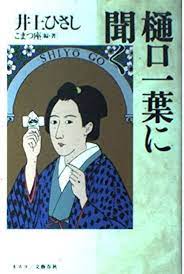
Her works, although rooted in a specific time and place, gained universal significance through her ability to capture the essence of human experiences and emotions. Her major works, such as "Takekurabe," "Nigorie," and "Jūsan'ya," are considered milestones in the history of Japanese literature, showcasing her unique ability to combine the beauty of language with a profound social message.
 "Takekurabe" (Growing Up) - In the Prostitution District of Yoshiwara
"Takekurabe" (Growing Up) - In the Prostitution District of Yoshiwara
"I am educated in such a way that even if I wanted to, I would not have the opportunity to go any other path."
- "Takekurabe," Higuchi Ichiyo, 1895
"Takekurabe" (Growing Up) is perhaps Ichiyo's most famous work, depicting the lives of children in the Yoshiwara prostitution district. This story, set in the urban realities of impoverished Tokyo districts, portrays the destinies of several characters, especially Midori, a young girl on the cusp of adulthood. This work, full of nostalgia and sadness, beautifully illustrates the passage from innocence to the harsh reality of life in Yoshiwara. In "Takekurabe," Ichiyo shows how childhood in the shadow of prostitution and poverty affects young minds, while subtly criticizing the social conditions that allow it.
"Nigorie" (Muddy Waters) - Life in a Patriarchal Society
"Life is like a turbulent sea, full of difficulties and dangers, but we must somehow float on its surface."
- "Nigorie," Higuchi Ichiyo, 1895
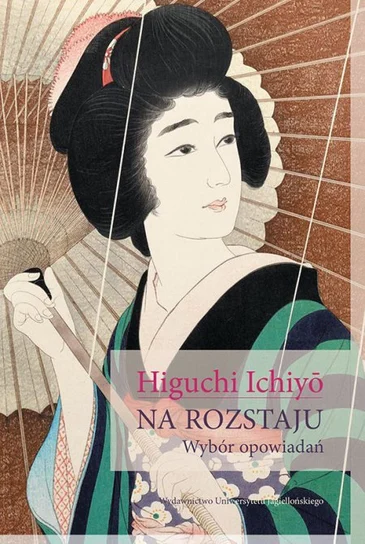
With remarkable precision, Ichiyo conveys Oriki's emotions and thoughts, depicting the tension between her inner world and external realities. For example, the scene in which Oriki reflects on her past reflects the conflict between the desire for independence and the societal realities that constrain her. Through her work, Oriki encounters various men, which serves as a source of both curiosity and disappointment. Her relationships with men, both friendly and tension-filled, shed light on the complexity and gender inequalities of the Meiji era.
Ichiyo, through Oriki's story, presents a broader picture of women's lives in Japan, where they had to navigate between societal expectations and their own aspirations. For example, the moment when Oriki recalls her childhood and contrasts it with her current situation illustrates how far her life diverges from the dreams and hopes she had as a young girl. In "Nigorie," Ichiyo explores these discrepancies, showing how the social and cultural system forces women to live in contradiction to their true desires and aspirations.
The climax of the work is a scenario in which Oriki must confront a dramatic choice, symbolizing her inner struggle. The decision she faces reflects the dilemma of many women in the Meiji era: whether to conform to societal norms and expectations or to follow her own heart, risking ostracism. In "Nigorie," Ichiyo challenges conventions and stereotypes, becoming the voice of women who were in the shadows for years, unnoticed and unheard.
 "Jūsan'ya" (Thirteenth Night) - The Depths of a Toxic Relationship
"Jūsan'ya" (Thirteenth Night) - The Depths of a Toxic Relationship
"If I were a man, I could go wherever I pleased, but I am a woman, so I must live according to society's rules."
- "Jūsan'ya," Higuchi Ichiyo, 1895
"Jūsan'ya" (Thirteenth Night), also known as "Thirteenth Night," is one of Higuchi Ichiyo's most moving works, thoroughly analyzing the difficult fates of women in the Meiji era. The story focuses on the character Oseki, a woman trapped in an unhappy marriage who must face the dilemma of leaving her husband and son. Her story, unfolding over the course of one crucial night, reveals deep emotional tension and internal conflicts resulting from years of psychological abuse by her husband.
In the novel, Ichiyo masterfully captures Oseki's feelings and thoughts, depicting her inner struggle with a decision that has enormous consequences not only for herself but also for her family. Oseki, being a mother and a wife, is faced with an impossible choice between her own happiness and her son's well-being. The novel not only portrays her personal tragedy but also the broader issue of women in society, who are forced to accept and suffer in silence.
Scenes in "Jūsan'ya," such as the moment when Oseki returns to her parents' home, aim to show how deeply rooted societal expectations are for women. Oseki's conversation with her parents, where she confides her plans to leave her husband, highlights the tensions between personal aspirations and societal norms. Oseki's parents, while sympathetic to her situation, advise her to stay with her husband for the sake of her son, emphasizing the role of a mother and wife as superior to her own happiness.
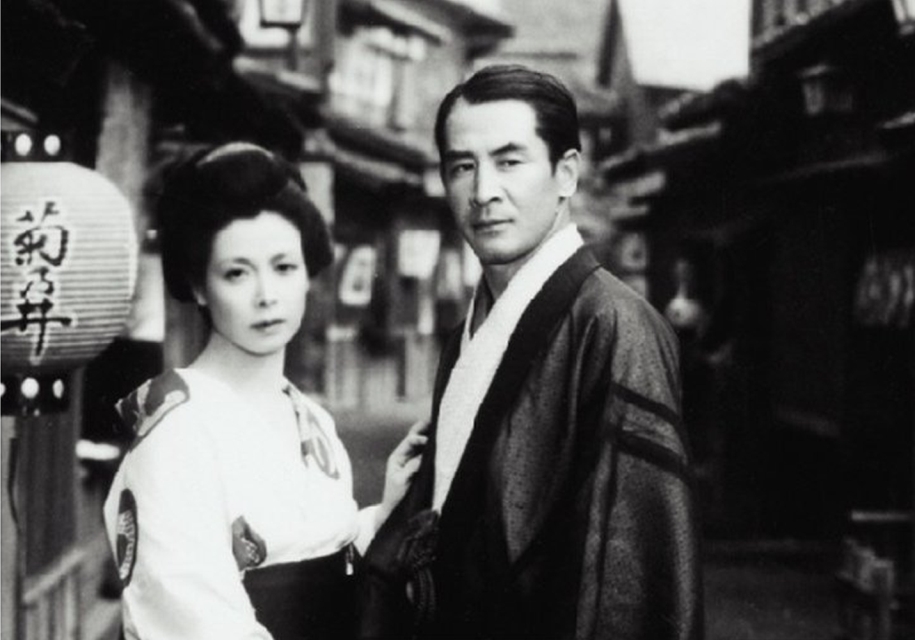
This novel, rich in emotional depth and complex characters, not only reflects the lives of women in the Meiji era but also becomes a universal story of pain, sacrifice, and difficult choices. "Jūsan'ya" is an expression of Ichiyo's profound understanding of the challenges women faced and her ability to portray these challenges in a way that remains relevant to this day.
Voice of Women in Meiji
"I will no longer seek love, I will not do what it takes to obtain love, never again. I will not look at life through rose-colored glasses, I will not burn with despair, I will not cry and sigh and dream. Such young, sad, and mad souls, like us, shed tears in the name of love, but no one looks at them. Crying and shedding tears, they move aside, step by step, but never speak. As women, we cannot speak too much, but sometimes I am sure our silence is as important as speaking." - Higuchi Ichiyo, 1985, "Nigorie"
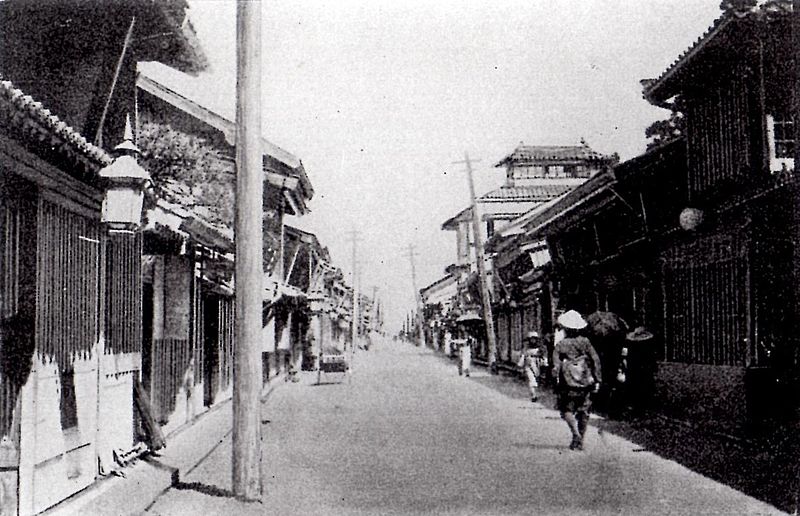
Higuchi Ichiyo, with her deeply human portraits of women in the Meiji era, had a significant impact on real women of her time. Her works, depicting the lives, dreams, worries, and dilemmas of women, became a source of inspiration and solace for many who struggled with similar issues and constraints in their lives. For example, after the publication of "Nigorie" (Troubled Waters), many women felt inspired to express their own experiences and emotions that had been suppressed or ignored by society. Ichiyo's stories showed that their personal struggles and dilemmas mattered, and they were not alone in their experiences.
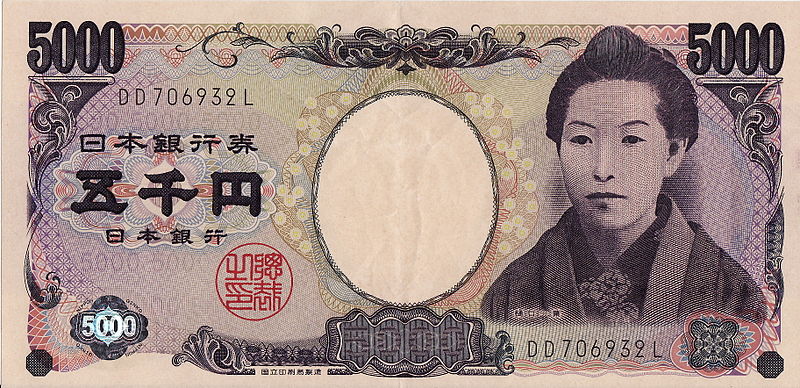
Echoes of Ichiyo in Today's Culture
Higuchi Ichiyo, one of the most influential figures in Japanese literature, has become a source of inspiration for many manga, anime, and film creators. Her life and work, filled with emotional depth and social commentary, have been transformed into various forms of art, speaking to new generations of audiences. Ichiyo's visions and her characters come to life again, both in literal adaptations of her works and in more liberal interpretations inspired by her life and creativity.
 Manga:
Manga:
One example is the manga "Ichiyo Higuchi Monogatari" by Yoshiko Sakurai, which directly tells the story of Ichiyo's life and career. This manga explores both the personal and professional challenges that Ichiyo faced, showcasing her journey to become one of the first female writers in Japan. It also depicts how Ichiyo grappled with the social limitations of her era, offering readers insight into her inner world and inspiring determination.
Anime:
Another adaptation is the anime "Haikara-san ga Tōru" ("Here Comes Miss Modern"), created by Waki Yamato. It tells the story of Benio, a young woman living in the Taisho era, who, like Ichiyo's heroines, opposes traditional women's roles and strives for independence. This anime addresses themes raised by Ichiyo, such as feminism, self-realization, and social challenges, illustrating the changes that were occurring in Japanese society.
Film:
In the realm of film, "Higuchi Ichiyo Monogatari" is a biographical film from 1994, directed by Toshiki Hirano, which portrays Ichiyo's life and work. This film emphasizes her influence on literature and her role as a pioneer in women's literature, paying tribute to her legacy. It not only highlights her personal struggle with societal limitations but also the profound impact her works had on society.
Higuchi Ichiyo in Our Time
Higuchi Ichiyo's legacy in Japanese literature and culture is undeniable, but her influence on the position of contemporary women in Japan is more complex and multifaceted. While Ichiyo was a trailblazer in depicting women's lives and their internal struggles, contemporary Japan still faces many challenges related to gender equality. Women in Japan often face the dilemma of choosing between a career and family life, and societal expectations still impose the burden of traditional roles. Despite progress, there are still many barriers, such as workplace inequalities, limited representation of women in politics and business, and deeply rooted stereotypes.
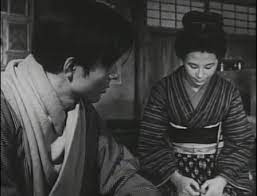
Despite progress in gender equality, many of the issues raised by Ichiyo are still relevant. Women in Japan still face the "glass ceiling," wage inequalities, and challenges related to returning to work after maternity leave. These phenomena show that while Ichiyo opened the door to discussions about gender equality, the path to full equality is still long and requires continuous efforts from both society and the system.
 Echoes of a Curageous Heart
Echoes of a Curageous Heart
Higuchi Ichiyo remains an unforgettable and influential figure in the history of Japanese literature, not only due to her extraordinary writing skills but also because of the courage with which she portrayed women's lives in her era. Her works, though written over a century ago, still reflect deep human experiences and emotions, speaking to contemporary readers. Ichiyo, as a writer who broke through social and cultural barriers, portraying the reality of women's lives from a perspective that was previously ignored or undervalued, remains a symbol of literary rebellion and courage.
Her role as a pioneer in Japanese literature and as a symbol of resistance to oppression gives her work a universal dimension. Ichiyo not only wrote about women but for women, giving them a voice and a space in which they could find reflections of their own experiences and emotions. Her legacy, as a woman who defied the limitations of her era and as an artist who expressed the depth and complexity of women's lives, remains incredibly important. Ichiyo, although she lived in different times, still inspires the fight for equality, understanding, and acceptance, reminding us of the value and power of the female voice in literature and beyond.
"It was all just a game. I consider it my punishment. Punishment for my heart being filled with tears. This is how Japanese women live. That I have been granted the privilege to experience it, that's why I tell it as it is. So, here I am again, silent as always. Unless you order me to play again. It's the only thing I can do, so I played. For you. I'll come again when you wish. I'll play again, as if life is worth nothing."
- Higuchi Ichiyo, 1984, "Takurebe"
"Strong Japanese Women"
see book by the author
of the page
未開 ソビエライ
An enthusiast of Asian culture with a deep appreciation for the diverse philosophies of the world. By education, a psychologist and philologist specializing in Korean studies. At heart, a programmer (primarily for Android) and a passionate technology enthusiast, as well as a practitioner of Zen and mono no aware. In moments of tranquility, adheres to a disciplined lifestyle, firmly believing that perseverance, continuous personal growth, and dedication to one's passions are the wisest paths in life. Author of the book "Strong Women of Japan" (>>see more)
Personal motto:
"The most powerful force in the universe is compound interest." - Albert Einstein (probably)
Mike Soray
(aka Michał Sobieraj)
未開 ソビエライ
An enthusiast of Asian culture with a deep appreciation for the diverse philosophies of the world. By education, a psychologist and philologist specializing in Korean studies. At heart, a programmer (primarily for Android) and a passionate technology enthusiast, as well as a practitioner of Zen and mono no aware. In moments of tranquility, adheres to a disciplined lifestyle, firmly believing that perseverance, continuous personal growth, and dedication to one's passions are the wisest paths in life. Author of the book "Strong Women of Japan" (>>see more)
Personal motto:
"The most powerful force in the universe is compound interest." - Albert Einstein (probably)
Mike Soray
(aka Michał Sobieraj)
Write us...
Ciechanów, Polska
dr.imyon@gmail.com
___________________
inari.smart
Would you like to share your thoughts or feedback about our website or app? Leave us a message, and we’ll get back to you quickly. We value your perspective!
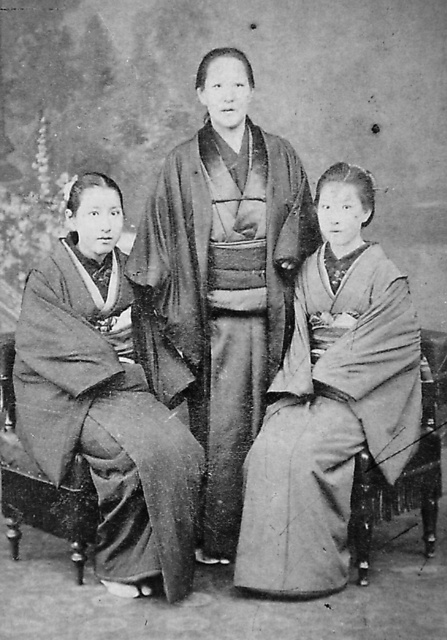 Obstacles from the Beginning
Obstacles from the Beginning 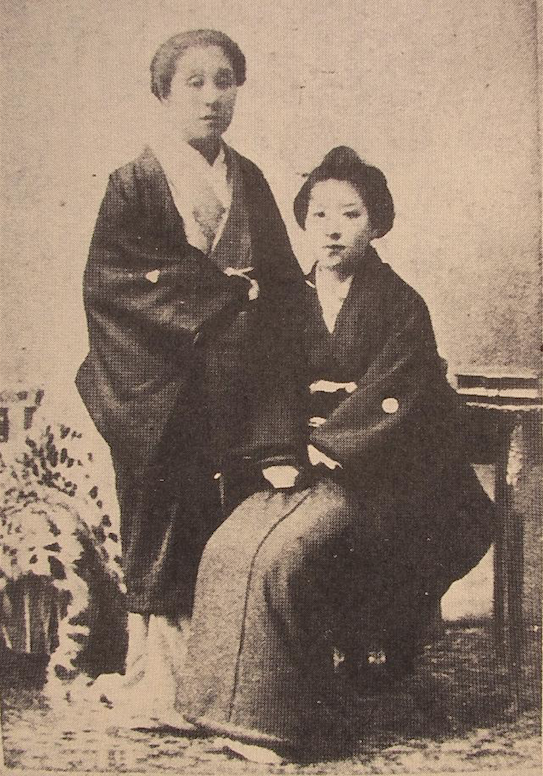 Father's Support Interrupted by Family Tragedy
Father's Support Interrupted by Family Tragedy 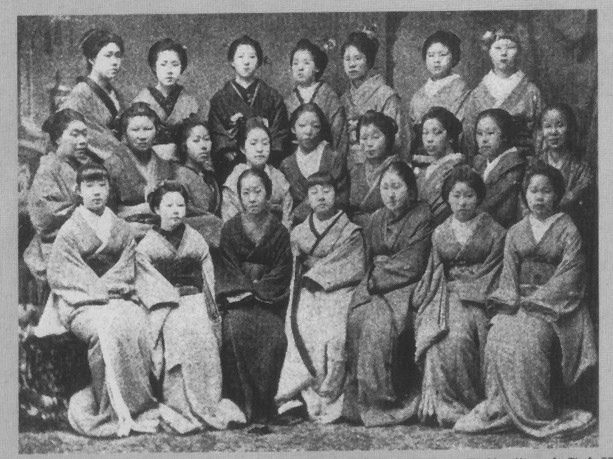 20-Year-Old Ichiyo's Debut
20-Year-Old Ichiyo's Debut  Struggles to Make Ends Meet
Struggles to Make Ends Meet 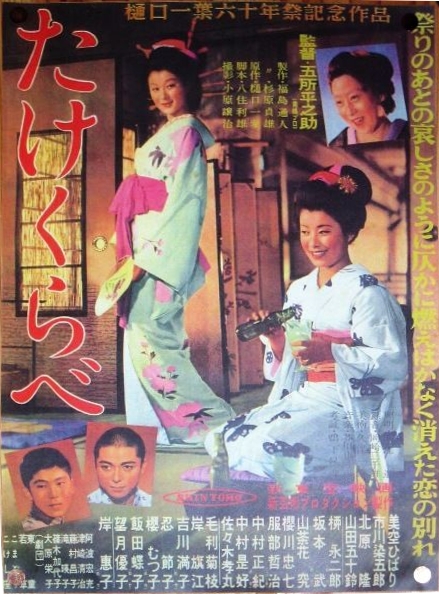 "Takekurabe" (Growing Up) - In the Prostitution District of Yoshiwara
"Takekurabe" (Growing Up) - In the Prostitution District of Yoshiwara "Jūsan'ya" (Thirteenth Night) - The Depths of a Toxic Relationship
"Jūsan'ya" (Thirteenth Night) - The Depths of a Toxic Relationship Manga:
Manga: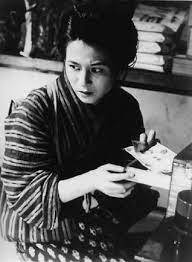 Echoes of a Curageous Heart
Echoes of a Curageous Heart

